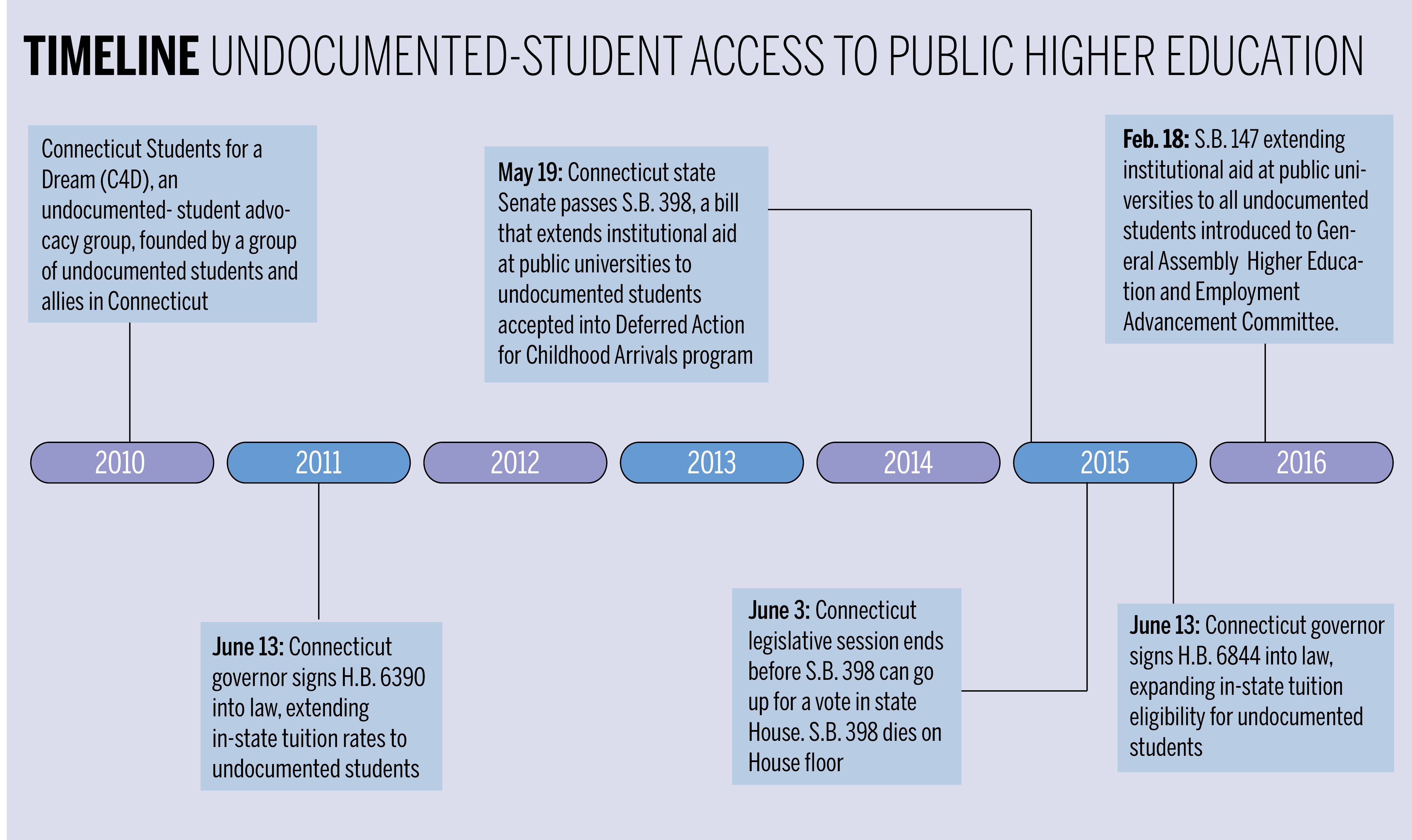
Members of the Yale Democrats and on-campus immigrant advocacy group FWDYale collected signatures Thursday evening for a petition supporting a proposed Connecticut law which would extend financial aid at state universities to undocumented immigrants.
The proposed bill, S.B. 147, would enable undocumented immigrants to apply for and receive the same institutional aid currently available to all in-state students who are U.S. citizens. A modified version of the bill, S.B. 398, passed through the state Senate last May, but failed to come up for a vote in the House before the end of the legislative session due to a protracted debate over the state budget. However, legislators and advocates supportive of S.B. 147, including Co-Chair of the Education & Employment Advancement Committee Rep. Roberta Willis, are hopeful that the bill will pass into law this year.
“The bottom line is, for the most part, the beneficiaries of this legislation are motivated students with good academic preparation who want to further their education,” Willis said.
Willis added that giving students equal access to institutional aid is an “issue of fairness.”
Advocates of the proposed legislation argue that the current structure of institutional aid at Connecticut’s state universities does not treat undocumented students fairly. Under the current system, undocumented students contribute part of their normal tuition to institutional aid apportioned for need or merit-based scholarships. Undocumented students, however, are ineligible to receive aid that they themselves are helping to provide for others, Willis said.
“Undocumented students graduate from Connecticut public schools and their education comes to a grinding halt. The only assistance they get is in-state tuition,” Willis said. “For many students, even that is a fairly significant hurdle.”
S.B. 147 represents the latest in a series of proposed Connecticut laws that have sought to increase access to higher education at state universities. In 2011, the state Legislature approved a bill that allows undocumented students to pay the in-state tuition rates at Connecticut’s public universities. In 2015, the state Legislature eliminated another barrier to higher education for undocumented students: State law previously required undocumented students to attend Connecticut public high schools for four years to qualify for in-state tuition rates, but new legislation lowered the enrollment requirement to two years.
Connecticut Students for a Dream, also known as C4D, an undocumented-student advocacy group formed in 2010, has encouraged the Connecticut legislature to increase access to higher education for undocumented immigrants. C4D garnered support for the 2011 and 2015 bills and has been a driving force behind S.B. 147. Several Yale-affiliated groups, including the Yale Dems, FWDYale, Movimiento Estudiantil Chicano de Aztlán de Yale and the Worker and Immigrant Rights Advocacy Clinic at Yale Law School have aided C4D in its advocacy work since its founding.
“Over the years, we have worked closely with several Yale groups on advocacy for undocumented students,” C4D Lead Coordinator Lucas Condognolla said. “S.B. 147 is the culmination of our efforts to get Connecticut to pass legislation on this issue.”
While advocates and legislators are optimistic that S.B. 147 will be passed into law this legislative session, the bill still faces significant hurdles, including a tense political climate and a shortened legislative session due to the 2016 election, Condognolla said. Yale Dems president Maxwell Ulin ’17 said these challenges make student advocacy particularly important.
“Some members of the General Assembly are reticent to take bold stands on immigration,” Ulin said. “We must show that deep, grassroots support exists both at Yale and across the state for this measure and bills like it.”
At least six states allow undocumented students to receive state financial aid and two prohibit undocumented students from enrolling at any public post-secondary institution as of October 2015.
Interested in getting more news about New Haven? Join our newsletter!







